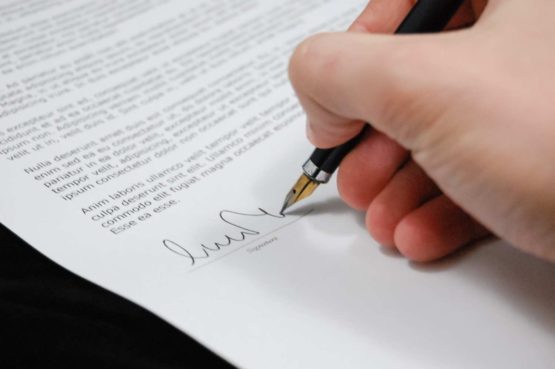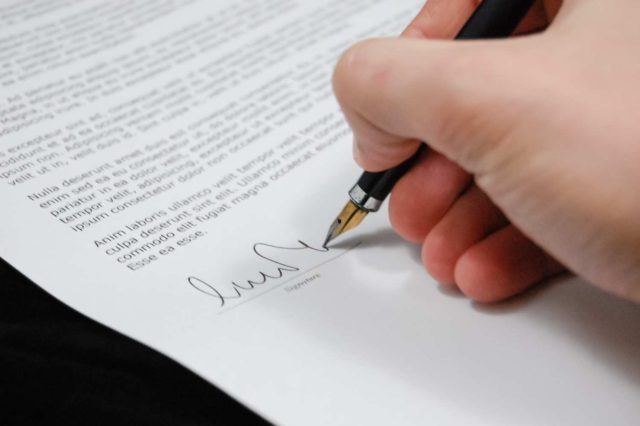Tribunal Orders
Either at a preliminary hearing or in advance on its own volition, the Tribunal will usually make “orders” or “directions”.
These are tasks to be completed by a certain date to ensure the case is ready for Trial. The orders may vary slightly from case to case, but there are common directions found in most cases.
When an order is made with a date, you generally have until midnight to ensure compliance. Often orders will say by 4pm on [x date] in which case the default midnight rule does not apply.
It is best to cooperative with the other side and ensure compliance with the dates. However, if the other side miss a deadline, it is best to liaise with them and try to agree an alternative date. The Tribunal expect such cooperation.
It is usually not a good idea to write to the Tribunal initially as often the order would have been complied with by the time the Tribunal respond. The exception is if the other side’s non-compliance is hampering your preparation. In such a case, you may want to notify the Tribunal and request an “unless order.” This is when the Tribunal make a new order with a consequence for non-compliance, such as the claim / defence being struck out.
You can agree alternative directions with the other side. I suggest this if you may miss a deadline. It is not advisable to just ignore the deadlines / the other side. If you make contact and politely request an extension on a deadline, the other side are likely to agree. If they do not, and they write to the Tribunal, you can show your polite request for an extension which should include the reason.
Common Directions:
1. Schedule of loss – The Claimant will usually be ordered to supply a schedule of loss early in the proceedings, which is a document setting out what award they seek if successful. It puts a value on the claim and often assists in settlement negotiations.
2. Disclosure of documents – “The parties are ordered to give mutual disclosure of documents relevant to the issues by list and copy documents.” This order means that each party must create a list of the documents in their possession which are relevant and to send the list and a copy of the documents to the other side. This includes documents that hurt your position, these must also be disclosed. Sometimes the order varies and says lists are to be exchanged and for “inspection” to be carried out later. This means you send your list and receive the other side’s list, then you request documents on each other’s list which you want to “inspect” – essentially you are asking for copies of documents you do not have. My general rule is to always send my list and copy documents as it is more efficient.
3. Preparation of Trial Bundle – The bundle is simply a file, usually a ring binder or lever arch file (or multiple depending on the case) that holds all the documents for use at the Tribunal. The bundle usually comprises the pleadings (ET1 & ET3, any Tribunal orders) and all the evidence (documents) that the parties want to refer to in date order. This is then paginated for ease of use at the Tribunal and everyone participating in the proceedings will have the same bundle.
When a witness is giving evidence, a copy of the bundle will be in front of them at the witness table. It is common for documents to be added to the bundle later. The duty to disclose documents continues and therefore evidence can and often should be added even after the deadline for its creation has passed.
4. Exchange of Witness Statements – Both parties are usually ordered to produce a witness statement for each witness that intends to give oral evidence. The witness statement can and often should refer to the documents in the Trial bundle using the appropriate page number.
Most of the time the parties are to carry out a mutual exchange of witness statements, which means they draft their own statement without seeing the other side’s statement. You then liaise with the other side and exchange statements at the same time.
5. Cast List & Chronology – depending on the complexity of the case the Tribunal may order the parties to agree a cast list and chronology for use at Trial. This is essentially a document explaining the people involved in the matter (usually the witnesses) and a chronology setting out the key events and the relevant dates. This is often helpful to get the Tribunal up to speed as it will not be familiar with the case.
Disclaimer
This blog is for information purposes only. Nothing should be relied upon as a substitute for legal advice and nothing written should be construed as legal advice or perceived as creating a lawyer-client relationship.
What Clients Say…
"Blair Toner is an outstanding employment law resource. I have instructed him in every type of employment tribunal hearing and am always impressed by his level of preparation and service offered."
Chris Cook, Head of Employment, Partner“I have instructed Blair Toner in a wide range of employment matters. Having witnessed Blair in action at the employment tribunal, I have first-hand experience of his abilities and skills. His attention to detail and knowledge of the minutest details of the legislation is most impressive, and is what makes him stand out as one of the best advocates I have instructed.”
Aarti Jagpal, Solicitor“Blair represented us in an Employment Tribunal claim from start to finish, including acting as our Advocate at the Trial. At all times Blair was extremely reassuring and professional in guiding us through the process and ensuring that we presented our strongest case. It was great to work with him and he represented us excellently."
Kuhrt, Executive Director, West London Mission
"Blair Toner is an outstanding employment law resource. I have instructed him in every type of employment tribunal hearing and am always impressed by his level of preparation and service offered."
Chris Cook, Head of Employment, Partner“I have instructed Blair Toner in a wide range of employment matters. Having witnessed Blair in action at the employment tribunal, I have first-hand experience of his abilities and skills. His attention to detail and knowledge of the minutest details of the legislation is most impressive, and is what makes him stand out as one of the best advocates I have instructed.”
Aarti Jagpal, Solicitor“Blair represented us in an Employment Tribunal claim from start to finish, including acting as our Advocate at the Trial. At all times Blair was extremely reassuring and professional in guiding us through the process and ensuring that we presented our strongest case. It was great to work with him and he represented us excellently."
Kuhrt, Executive Director, West London Mission












